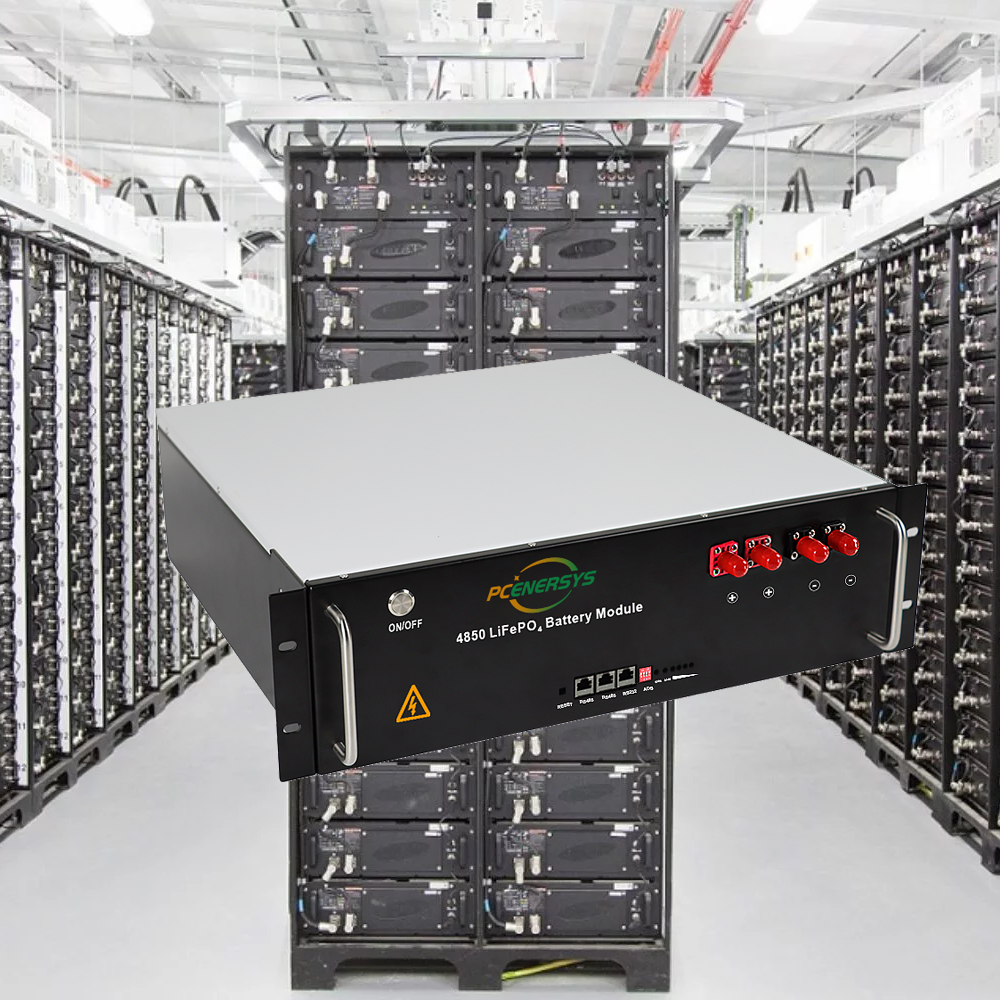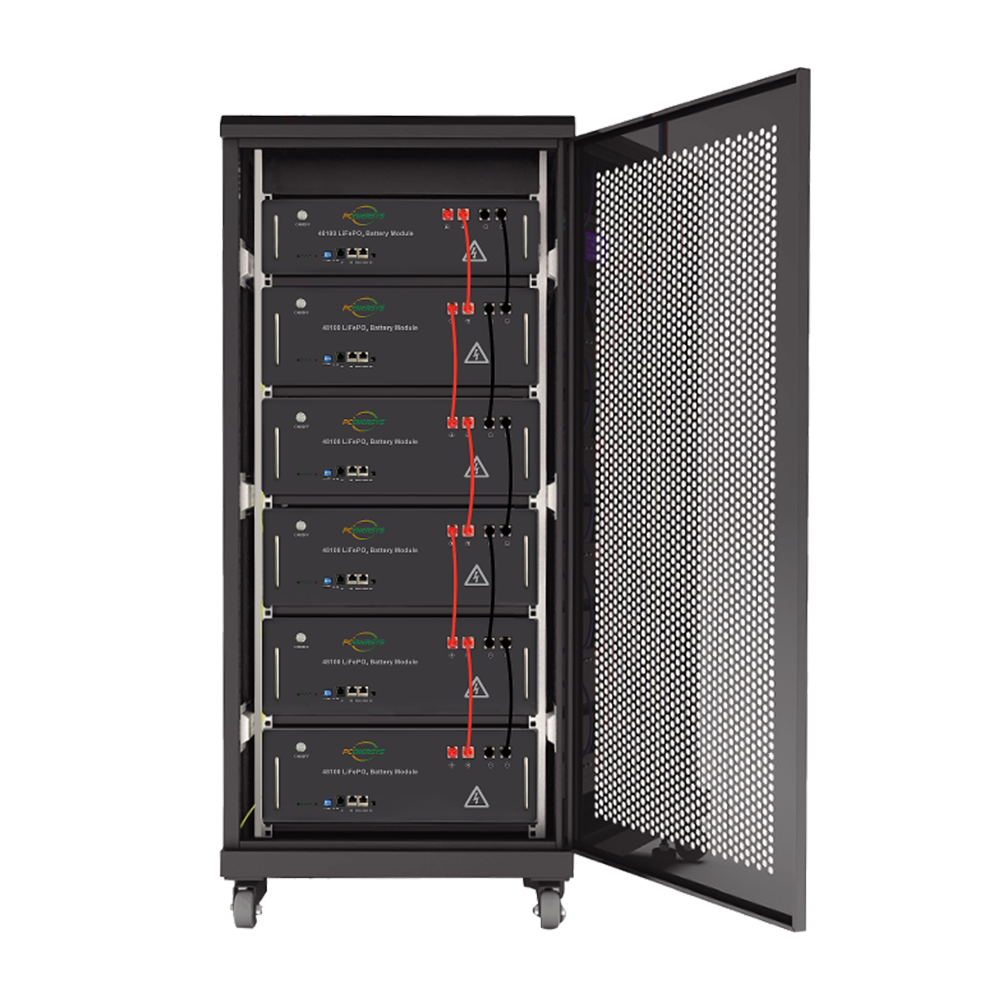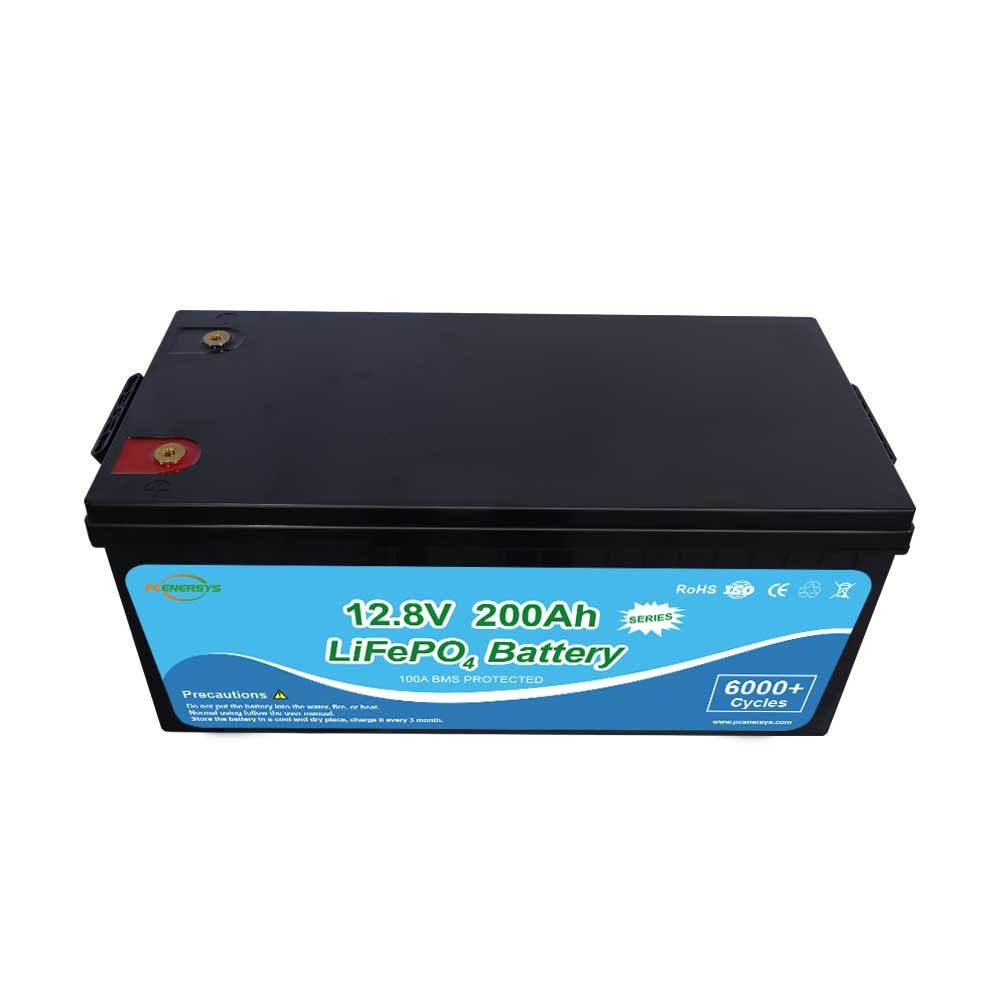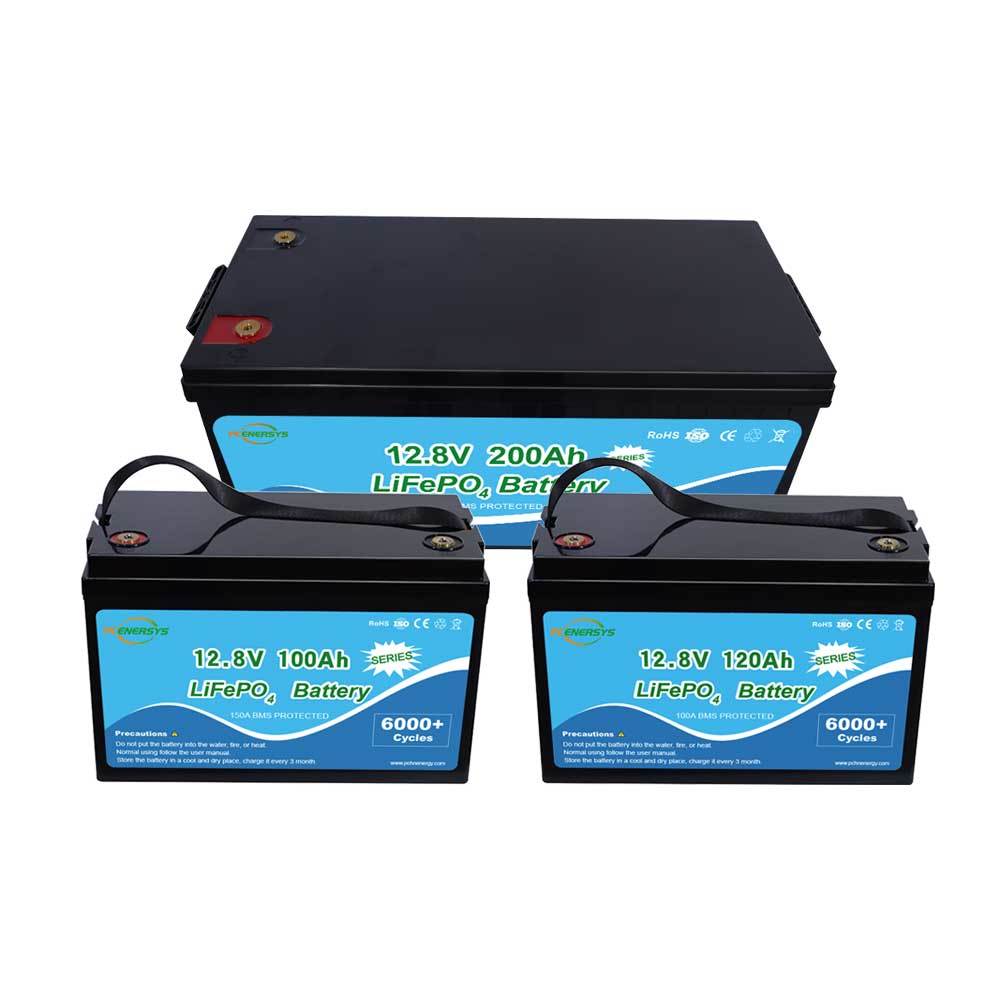language
English
العربية
বাংলাদেশ
Български
Hrvatski
Česky
Dansk
Nederland
Esperanto
Slovenski
filipino
Suomi
Français
Maori
Georgian
Deutsch
Ελλάδα
ישראל
इंडिया
Magyarország
Ísland
Indonesia
Irlanda
Italia
日本語
Sovensko
Հայաստան
한국
Kyrgyz
ປະເທດລາວ
Latvian
Lithuanian
Luxembourgish
Macedonian
Малайская
Maltese
Монгол улс
ဗမာ
नेपाल
Norge
ایران
Polska
Portugal
România
Российская
Србија
Србија
Bosanski
Slovenian
Беларус
España
Sverige
Точик
ประเทศไทย
Türk
Azərbaycan
Uzbek
Việt Nam
NEWS
Contact Us
PCENERSYS (SHENZHEN) Co.,Ltd.
Building C, FuXinLin lndustry Park, Hangcheng lndustrial Zone, Taoyuan Community, XiXiang Street, Bao'An District, Shenzhen, Guangdong, China
E-mail:Sales@pcenersys.com
Tel: 0086-755-36610076
Fax: 0086-755-36610073
Why 48V 200Ah Lithium Ion Batteries are the Future of Energy Storage
Table of Contents:
1. Introduction: The Need for Advanced Energy Storage Solutions
2. Understanding Lithium Ion Batteries and their Role in Energy Storage
3. The Rise of 48V 200Ah Lithium Ion Batteries
4. Advantages of 48V 200Ah Lithium Ion Batteries
4.1 Enhanced Energy Density and Power Efficiency
4.2 Longer Lifespan and Durability
4.3 High Charge/Discharge Rates
4.4 Compact and Lightweight Design
5. Applications of 48V 200Ah Lithium Ion Batteries
5.1 Renewable Energy Systems
5.2 Telecommunications
5.3 Electric Vehicles
5.4 Industrial and Commercial Power Backup
6. Overcoming Challenges and Ensuring Safety
7. FAQs about 48V 200Ah Lithium Ion Batteries
7.1 How long do 48V 200Ah Lithium Ion Batteries last?
7.2 Can 48V 200Ah Lithium Ion Batteries be used in extreme weather conditions?
7.3 Are 48V 200Ah Lithium Ion Batteries expensive?
7.4 Can 48V 200Ah Lithium Ion Batteries be recycled?
7.5 How do 48V 200Ah Lithium Ion Batteries compare to traditional lead-acid batteries?
8. Conclusion: Embracing the Future of Energy Storage with 48V 200Ah Lithium Ion Batteries
Introduction: The Need for Advanced Energy Storage Solutions
The increasing demand for renewable energy sources and the need for reliable power storage systems have led to rapid advancements in energy storage technology. Traditional lead-acid batteries have been widely used for decades, but their limitations in terms of capacity, efficiency, and lifespan have paved the way for more innovative alternatives. Among these alternatives, 48V 200Ah lithium ion batteries have emerged as a promising solution for energy storage applications. In this article, we will explore the advantages and potential of these cutting-edge batteries and their role in shaping the future of energy storage.
Understanding Lithium Ion Batteries and their Role in Energy Storage
Lithium ion batteries are rechargeable energy storage devices that utilize lithium ions moving between a positive and negative electrode to facilitate the flow of electric current. Their high energy density, low self-discharge rate, and longer lifespan make them ideal for various applications, including portable electronics, electric vehicles, and renewable energy systems. With advancements in lithium ion battery technology, the emergence of 48V 200Ah batteries has opened up new possibilities for energy storage on a larger scale.
The Rise of 48V 200Ah Lithium Ion Batteries
The demand for higher capacity and more efficient energy storage solutions has led to the development of 48V 200Ah lithium ion batteries. These batteries offer a significant increase in voltage and capacity compared to their lower voltage counterparts. The 48V configuration allows for better compatibility with various power systems, making them an ideal choice for both residential and commercial applications. As renewable energy sources continue to gain prominence, 48V 200Ah lithium ion batteries are becoming a key component in enabling efficient energy storage and management.
Advantages of 48V 200Ah Lithium Ion Batteries
4.1 Enhanced Energy Density and Power Efficiency
48V 200Ah lithium ion batteries are known for their high energy density, which means they can store more energy in a smaller and lighter package. This advantage becomes crucial in applications where space is limited, such as residential installations or electric vehicles. Additionally, these batteries offer better power efficiency, allowing for faster charging and discharging rates, leading to improved performance and reduced energy waste.
4.2 Longer Lifespan and Durability
Compared to traditional lead-acid batteries, 48V 200Ah lithium ion batteries have a significantly longer lifespan. They can withstand a higher number of charge-discharge cycles without significant degradation, resulting in reduced maintenance and replacement costs. Moreover, the durability of lithium ion batteries makes them more resistant to vibrations, shocks, and temperature fluctuations, ensuring reliable performance in various environments.
4.3 High Charge/Discharge Rates
48V 200Ah lithium ion batteries have the ability to deliver high charge and discharge rates, making them suitable for applications that require bursts of power. This feature is particularly beneficial in scenarios where energy demands fluctuate, such as in renewable energy systems or electric vehicles. The high charge/discharge rates enable quick response times, ensuring a stable power supply during peak demand periods.
4.4 Compact and Lightweight Design
The compact and lightweight design of 48V 200Ah lithium ion batteries allows for easy installation and integration into existing systems. Their small footprint and reduced weight make them an ideal choice for applications where space is limited or mobility is required. This advantage not only simplifies the installation process but also reduces transportation costs and environmental impact.
Applications of 48V 200Ah Lithium Ion Batteries
5.1 Renewable Energy Systems
The integration of 48V 200Ah lithium ion batteries into renewable energy systems, such as solar or wind power installations, enables efficient energy storage and management. These batteries can store surplus energy generated during periods of low demand and supply it during peak demand, ensuring a stable and reliable power supply. Additionally, their high charge/discharge rates and long lifespan make them suitable for off-grid or hybrid systems, where energy independence is vital.
5.2 Telecommunications
Telecommunication infrastructure requires reliable power backup solutions to ensure uninterrupted service, especially in remote or disaster-prone areas. 48V 200Ah lithium ion batteries provide a compact and reliable energy storage solution for telecommunication systems, offering high energy density, long lifespan, and fast response times. Their ability to withstand extreme weather conditions further enhances their suitability for outdoor installations.
5.3 Electric Vehicles
The transition towards electric vehicles (EVs) calls for advanced energy storage solutions that can deliver high power density, long range, and fast charging capabilities. 48V 200Ah lithium ion batteries meet these requirements, providing efficient energy storage for EVs. Their lightweight design and high charge/discharge rates enable longer driving ranges and shorter charging times, making them a viable option for the future of transportation.
5.4 Industrial and Commercial Power Backup
Industries and commercial facilities often require backup power solutions to prevent disruptions in critical processes. 48V 200Ah lithium ion batteries offer a compact and reliable energy storage solution for backup power systems. Their high energy density, fast response times, and long lifespan ensure uninterrupted power supply during grid outages, protecting valuable equipment and data.
Overcoming Challenges and Ensuring Safety
While 48V 200Ah lithium ion batteries offer numerous advantages, it is crucial to address safety considerations associated with their use. Proper battery management systems, thermal management, and safety protocols are essential to prevent overheating, overcharging, or short circuits. Manufacturers and users must adhere to strict safety guidelines to ensure the safe and efficient operation of these batteries.
FAQs about 48V 200Ah Lithium Ion Batteries
7.1 How long do 48V 200Ah Lithium Ion Batteries last?
48V 200Ah lithium ion batteries have an average lifespan of 10-15 years, depending on usage and maintenance. Proper battery management and regular monitoring can maximize their longevity.
7.2 Can 48V 200Ah Lithium Ion Batteries be used in extreme weather conditions?
Yes, 48V 200Ah lithium ion batteries are designed to withstand a wide range of temperatures, making them suitable for both hot and cold environments. However, extreme temperatures can affect their performance and lifespan, so proper thermal management is crucial.
7.3 Are 48V 200Ah Lithium Ion Batteries expensive?
While the initial cost of 48V 200Ah lithium ion batteries may be higher compared to traditional lead-acid batteries, their longer lifespan, higher efficiency, and reduced maintenance costs make them a cost-effective investment in the long run.
7.4 Can 48V 200Ah Lithium Ion Batteries be recycled?
Yes, lithium ion batteries, including 48V 200Ah lithium ion batteries, can be recycled. Proper recycling facilities can recover valuable materials and ensure the safe disposal of hazardous components.
7.5 How do 48V 200Ah Lithium Ion Batteries compare to traditional lead-acid batteries?
48V 200Ah lithium ion batteries outperform traditional lead-acid batteries in terms of energy density, lifespan, charge/discharge rates, and power efficiency. They offer a more compact and lightweight design, enabling greater flexibility in various applications.
Conclusion: Embracing the Future of Energy Storage with 48V 200Ah Lithium Ion Batteries
As the demand for efficient and sustainable energy storage continues to grow, 48V 200Ah lithium ion batteries have emerged as a game-changing solution. Their enhanced energy density, longer lifespan, high charge/discharge rates, and compact design make them a reliable choice for various applications, including renewable energy systems, telecommunications, electric vehicles, and industrial power backup. By embracing these advanced batteries, we can pave the way for a greener and more efficient future of energy storage.
1. Introduction: The Need for Advanced Energy Storage Solutions
2. Understanding Lithium Ion Batteries and their Role in Energy Storage
3. The Rise of 48V 200Ah Lithium Ion Batteries
4. Advantages of 48V 200Ah Lithium Ion Batteries
4.1 Enhanced Energy Density and Power Efficiency
4.2 Longer Lifespan and Durability
4.3 High Charge/Discharge Rates
4.4 Compact and Lightweight Design
5. Applications of 48V 200Ah Lithium Ion Batteries
5.1 Renewable Energy Systems
5.2 Telecommunications
5.3 Electric Vehicles
5.4 Industrial and Commercial Power Backup
6. Overcoming Challenges and Ensuring Safety
7. FAQs about 48V 200Ah Lithium Ion Batteries
7.1 How long do 48V 200Ah Lithium Ion Batteries last?
7.2 Can 48V 200Ah Lithium Ion Batteries be used in extreme weather conditions?
7.3 Are 48V 200Ah Lithium Ion Batteries expensive?
7.4 Can 48V 200Ah Lithium Ion Batteries be recycled?
7.5 How do 48V 200Ah Lithium Ion Batteries compare to traditional lead-acid batteries?
8. Conclusion: Embracing the Future of Energy Storage with 48V 200Ah Lithium Ion Batteries
Introduction: The Need for Advanced Energy Storage Solutions
The increasing demand for renewable energy sources and the need for reliable power storage systems have led to rapid advancements in energy storage technology. Traditional lead-acid batteries have been widely used for decades, but their limitations in terms of capacity, efficiency, and lifespan have paved the way for more innovative alternatives. Among these alternatives, 48V 200Ah lithium ion batteries have emerged as a promising solution for energy storage applications. In this article, we will explore the advantages and potential of these cutting-edge batteries and their role in shaping the future of energy storage.
Understanding Lithium Ion Batteries and their Role in Energy Storage
Lithium ion batteries are rechargeable energy storage devices that utilize lithium ions moving between a positive and negative electrode to facilitate the flow of electric current. Their high energy density, low self-discharge rate, and longer lifespan make them ideal for various applications, including portable electronics, electric vehicles, and renewable energy systems. With advancements in lithium ion battery technology, the emergence of 48V 200Ah batteries has opened up new possibilities for energy storage on a larger scale.
The Rise of 48V 200Ah Lithium Ion Batteries
The demand for higher capacity and more efficient energy storage solutions has led to the development of 48V 200Ah lithium ion batteries. These batteries offer a significant increase in voltage and capacity compared to their lower voltage counterparts. The 48V configuration allows for better compatibility with various power systems, making them an ideal choice for both residential and commercial applications. As renewable energy sources continue to gain prominence, 48V 200Ah lithium ion batteries are becoming a key component in enabling efficient energy storage and management.
Advantages of 48V 200Ah Lithium Ion Batteries
4.1 Enhanced Energy Density and Power Efficiency
48V 200Ah lithium ion batteries are known for their high energy density, which means they can store more energy in a smaller and lighter package. This advantage becomes crucial in applications where space is limited, such as residential installations or electric vehicles. Additionally, these batteries offer better power efficiency, allowing for faster charging and discharging rates, leading to improved performance and reduced energy waste.
4.2 Longer Lifespan and Durability
Compared to traditional lead-acid batteries, 48V 200Ah lithium ion batteries have a significantly longer lifespan. They can withstand a higher number of charge-discharge cycles without significant degradation, resulting in reduced maintenance and replacement costs. Moreover, the durability of lithium ion batteries makes them more resistant to vibrations, shocks, and temperature fluctuations, ensuring reliable performance in various environments.
4.3 High Charge/Discharge Rates
48V 200Ah lithium ion batteries have the ability to deliver high charge and discharge rates, making them suitable for applications that require bursts of power. This feature is particularly beneficial in scenarios where energy demands fluctuate, such as in renewable energy systems or electric vehicles. The high charge/discharge rates enable quick response times, ensuring a stable power supply during peak demand periods.
4.4 Compact and Lightweight Design
The compact and lightweight design of 48V 200Ah lithium ion batteries allows for easy installation and integration into existing systems. Their small footprint and reduced weight make them an ideal choice for applications where space is limited or mobility is required. This advantage not only simplifies the installation process but also reduces transportation costs and environmental impact.
Applications of 48V 200Ah Lithium Ion Batteries
5.1 Renewable Energy Systems
The integration of 48V 200Ah lithium ion batteries into renewable energy systems, such as solar or wind power installations, enables efficient energy storage and management. These batteries can store surplus energy generated during periods of low demand and supply it during peak demand, ensuring a stable and reliable power supply. Additionally, their high charge/discharge rates and long lifespan make them suitable for off-grid or hybrid systems, where energy independence is vital.
5.2 Telecommunications
Telecommunication infrastructure requires reliable power backup solutions to ensure uninterrupted service, especially in remote or disaster-prone areas. 48V 200Ah lithium ion batteries provide a compact and reliable energy storage solution for telecommunication systems, offering high energy density, long lifespan, and fast response times. Their ability to withstand extreme weather conditions further enhances their suitability for outdoor installations.
5.3 Electric Vehicles
The transition towards electric vehicles (EVs) calls for advanced energy storage solutions that can deliver high power density, long range, and fast charging capabilities. 48V 200Ah lithium ion batteries meet these requirements, providing efficient energy storage for EVs. Their lightweight design and high charge/discharge rates enable longer driving ranges and shorter charging times, making them a viable option for the future of transportation.
5.4 Industrial and Commercial Power Backup
Industries and commercial facilities often require backup power solutions to prevent disruptions in critical processes. 48V 200Ah lithium ion batteries offer a compact and reliable energy storage solution for backup power systems. Their high energy density, fast response times, and long lifespan ensure uninterrupted power supply during grid outages, protecting valuable equipment and data.
Overcoming Challenges and Ensuring Safety
While 48V 200Ah lithium ion batteries offer numerous advantages, it is crucial to address safety considerations associated with their use. Proper battery management systems, thermal management, and safety protocols are essential to prevent overheating, overcharging, or short circuits. Manufacturers and users must adhere to strict safety guidelines to ensure the safe and efficient operation of these batteries.
FAQs about 48V 200Ah Lithium Ion Batteries
7.1 How long do 48V 200Ah Lithium Ion Batteries last?
48V 200Ah lithium ion batteries have an average lifespan of 10-15 years, depending on usage and maintenance. Proper battery management and regular monitoring can maximize their longevity.
7.2 Can 48V 200Ah Lithium Ion Batteries be used in extreme weather conditions?
Yes, 48V 200Ah lithium ion batteries are designed to withstand a wide range of temperatures, making them suitable for both hot and cold environments. However, extreme temperatures can affect their performance and lifespan, so proper thermal management is crucial.
7.3 Are 48V 200Ah Lithium Ion Batteries expensive?
While the initial cost of 48V 200Ah lithium ion batteries may be higher compared to traditional lead-acid batteries, their longer lifespan, higher efficiency, and reduced maintenance costs make them a cost-effective investment in the long run.
7.4 Can 48V 200Ah Lithium Ion Batteries be recycled?
Yes, lithium ion batteries, including 48V 200Ah lithium ion batteries, can be recycled. Proper recycling facilities can recover valuable materials and ensure the safe disposal of hazardous components.
7.5 How do 48V 200Ah Lithium Ion Batteries compare to traditional lead-acid batteries?
48V 200Ah lithium ion batteries outperform traditional lead-acid batteries in terms of energy density, lifespan, charge/discharge rates, and power efficiency. They offer a more compact and lightweight design, enabling greater flexibility in various applications.
Conclusion: Embracing the Future of Energy Storage with 48V 200Ah Lithium Ion Batteries
As the demand for efficient and sustainable energy storage continues to grow, 48V 200Ah lithium ion batteries have emerged as a game-changing solution. Their enhanced energy density, longer lifespan, high charge/discharge rates, and compact design make them a reliable choice for various applications, including renewable energy systems, telecommunications, electric vehicles, and industrial power backup. By embracing these advanced batteries, we can pave the way for a greener and more efficient future of energy storage.
Keyword:48v 200ah lithium ion battery
Copyright © 2022-2026 PCENERSYS (SHENZHEN) Co.,Ltd. Power by 300.cn 粤ICP备2022001237号
Powered by:www.300.cn SEO












